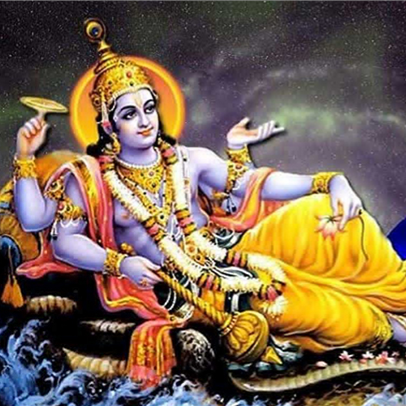No products in the cart.
Devshayani Ekadashi 2022

10th
July 2022
(Sunday)
Devshayani Ekadashi Starts in : 10/07/2022
Devshayani Ekadashi Ends in : 10/07/2022
2022 Devshayani Ekadashi

Devshayani Ekadashi
Devshayani Ekadashi 2022
Devshayani Ekadashi 2022
Devshayani Ekadashi on Sunday, July 10, 2022
On 11th Jul, Parana Time – 06:00 AM to 08:34 AM
On Parana Day Dwadashi End Moment – 11:13 AM
Ekadashi Tithi Begins – 04:39 PM on Jul 09, 2022
Ekadashi Tithi Ends – 02:13 PM on Jul 10, 2022
Ashadha Shukla Paksha Ekadashi is known as Devshayani Ekadashi. Lord Vishnu goes to sleep on this day and wakes up after four months on Prabodhini Ekadashi.
Devshayani Ekadashi comes just after famous Jagannath Rathyatra and currently falls in month of June or July on English calendar. Chaturmas, a holy period of four months in Hindu calendar, starts from this day.
Devshayani Ekadashi is also known as Padma Ekadashi, Ashadi Ekadashi and Hari Shayani Ekadashi.
Devshayani Ekadashi Story
Devshayani Ekadashi Vrat Katha is narrated to Narada Muni by Lord Brahma. There was a king by the name Mandhata. He ruled over a highly prosperous and wealthy kingdom. His people were kept exceptionally happy by their king.
But there came a time, when his kingdom suffered famine and drought. There was extreme scarcity of rains for three years. People were suffering from illness and starvation. The people of his kingdom told him that it was because of his sins, the people of the kingdom were in utter suffering.
King Mandata was unable to figure out what mistake did he make in the past, because of which his people were suffering. Hence, he went out for a long journey, where he met a lot of holy men but nobody was able to provide him with a solution. Hence, he decided to carry on his journey till he found the solution for this problem.
On his way Mandhata, met Sage Angira who told him that it is not the reason which is significant but, how can you get rains for your people was the most important thing to be thought of at that point of time. Sage Angira told him to worship Lord Vishnu on the day of Devshayani Ekadashi and observe a fast in his name with complete rituals.
Thus, finding a solution for his problem Mandhata returned to his kingdom and observed the Devshayani Ekadashi Vrat along with his entire family. Soon, the results of his Devshayani Ekadashi Vrat were witnessed by the people of his kingdom. The kingdom found its lost glory and rains returned resulting in happiness & prosperity.
Thus, it is believed that people who observe the Devshayani Ekadashi Vrat are blessed with peace, happiness and prosperity by Lord Vishnu.
Devotees who observe the Devshayani Ekadashi Vrat with full devotion, dedication, faith and with complete rituals are liberated from the cycle of birth and death. These devotees attain salvation or Moksha.
So, observe the Devshayani Ekadashi Vrat with full devotion, without any desire for material wealth and we are sure Lord Vishnu and Goddess Lakshmi will bless you.
Devshayani Ekadashi Parana
Parana means breaking the fast. Ekadashi Parana is done after sunrise on next day of Ekadashi fast. It is necessary to do Parana within Dwadashi Tithi unless Dwadashi is over before sunrise. Not doing Parana within Dwadashi is similar to an offence.
Parana should not be done during Hari Vasara. One should wait for Hari Vasara to get over before breaking the fast. Hari Vasara is first one fourth duration of Dwadashi Tithi. The most preferred time to break the fast is Pratahkal. One should avoid breaking the fast during Madhyana. If due to some reasons one is not able to break the fast during Pratahkal then one should do it after Madhyana.
At times Ekadashi fasting is suggested on two consecutive days. It is advised that Smartha with family should observe fasting on first day only. The alternate Ekadashi fasting, which is the second one, is suggested for Sanyasis, widows and for those who want Moksha. When alternate Ekadashi fasting is suggested for Smartha it coincides with Vaishnava Ekadashi fasting day.
Ekadashi fasting on both days is suggested for staunch devotees who seek for love and affection of Lord Vishnu.
